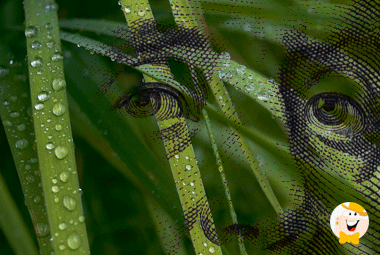
Paradise is returning to the Caribbean.
It's a slow process -- everything worthwhile takes time -- but it's beginning to happen. And you can give the credit to Canada and the United States of America.
Before I explain what I am talking about, let me ask you a question. When is the last time you or a member of your family went to bed hungry.
'Is this a trick question?,' some of you are saying. I assure you it is not. When is the last time you or your family genuinely went to bed hungry and you didn't have access to food or the money to buy it?
If you are like 98 per cent of the people in America, the answer is probably never.
I lived on three different islands in the Caribbean for a total of five years -- St. Kitts, Nevis and St. Maarten. During that period of time, I saw a lot of people go without food. Some went to bed hungry two or three days a week.
Shortly after I moved to St. Kitts to work as editor of The Observer, a weekly newspaper that served the islands of St. Kitts and Never, the twin island Federation lost its sugar cane industry. Overnight 1,200 hard-working sugar cane employees were thrown out of work. The government just couldn't afford to subsidize them any longer.
If something like that would have occurred in the United States, the men could have found jobs elsewhere. Such is not the case in the Caribbean, where jobs are as precious and as rare as pure gold.

Sugar cane is used to make rum, sugar and by-products. When the sugar cane industry moved to Central and South America, the men were left without their weekly pay coming in. Some found work in the tourism industry, but most of them remained without an income.
Their wives and children went to bed at night hungry. In many cases, the only thing they had to fill their stomachs was warm water.
My heart went out to the people of St. Kitts and Nevis. I knew Dr. Denzil Douglas, the Prime Minister for both islands, was doing everything in his power to help the island people, but his hands were tired by the poor state of the economy. Tourism and the sugar cane industry had been the foundation of the economy of the Federation.
I had a candid off-the-record conversation with Dr. Douglas and asked him why didn't his government convert the sugar cane fields to growing marijuana? Voters were already beginning to recognize the merits of the amazing plant and were making it legal in various states for medical as well as recreational use.
Dr. Douglas thought my idea had great merit, but said, 'Geno, if I did that, the U.S. government would brand me a drug trafficker. They would prohibit their citizens from visiting our islands and it would throw even more people out of work.'
But now, hallelujah, that has changed.
People in Canada voted to legalize marijuana for recreational use. States like Nevada, California, Oklahoma, Delaware, Arizona and other states have legalized the plant for recreational or medical use.
The relaxing of the laws paved the way for Caribbean islands to follow the lead and legalize marijuana in Jamaica and other islands. A movement is underway in St. Kitts to do the same.
When legalization happens, I am going to make a prediction: gang violence on the islands will diminish. Community life will return to normal. People will begin to live again. Smiles will return to the face of the population.

The Caribbean islands will return to paradise.
I miss the Caribbean islands. I miss the casinos, the poker, the sports betting, the thoroughbred race wagering, and I miss the people.
I am going to give the islands another year or so. They I plan to take a cruise back to the Caribbean, back to the paradise that I enjoyed during my five years of employment.
One of the people I intend to look up is Wilbur. He is a young Rastafarian who held down three jobs while I lived in St. Kitts. He repaired computers, fixed washing machines, and repaired air conditioning units.
'You need three jobs in the Caribbean in order to survive,' he told me.
He also had half a dozen large marijuana plants growing in front of his house. And when he had a little extra money, he played poker.
Wilbur belongs to the islands. He told me he would never be happy in Miami, Las Vegas, New York or Los Angeles.
'I am an island person through and through,' he said. 'When you return to paradise, you will find me here.'

0 comments:
Post a Comment